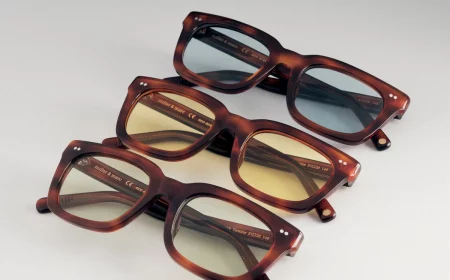Are Pomeranians Hypoallergenic? Answering 7 Common Questions
Pomeranians, with their luxuriant fluffy coats and soulful, expressive eyes, have become one of the most beloved dog breeds around the world. These pint-sized canines are much more than their charming appearances. They encapsulate a remarkable blend of joy, vivacity, and a touch of mischievousness. This unique combination endears them to many. Beyond their adorable looks, potential and current Pomeranian owners often find themselves pondering several questions. These queries range from their hypoallergenic nature to their suitability as family pets. Consequently, these little dogs often generate big discussions. In this comprehensive exploration, we aim to unravel some of the most pressing and common questions, like “are Pomeranians hypoallergenic?”. Our goal is to offer insights into what it truly means to live with these fluffy companions.
Today we will help you answer the question “are Pomeranians hypoallergenic?”
In this article
- The History of The Pomeranian Breed
- Are Pomeranians hypoallergenic?
- Are Pomeranians good pets?
- Do Pomeranians bark a lot?
- Are Pomeranians high energy?
- What scares Pomeranians?
- Can Pomeranians get aggressive?
- What are Pomeranians weaknesses?
- Are Pomeranians low shedding dogs?
- Do Pomeranians like to cuddle?
- Can Pomeranians sleep with you?
- Is a Pomeranian a good first dog?
- How often should you walk a Pomeranian?
The History of The Pomeranian Breed
The Pomeranian, with its roots in the Pomerania region of Northern Europe, has a history as rich and textured as its double coat. Originally, these dogs were larger, working breeds. Over centuries, they have evolved significantly. Their transformation into the diminutive, vivacious dogs we know today is a fascinating tale. This story involves selective breeding and changing societal preferences. Pomeranians, with their luxurious fur, perky ears, and spirited demeanor, quickly caught the attention of royalty and nobility. They’ve graced the laps of figures such as Queen Victoria. Her affection for the breed played a significant role in their miniaturization and rise in popularity.
Tracing back to robust work dogs, Pomeranians have evolved into beloved, petite companions
Are Pomeranians hypoallergenic?
Contrary to popular belief, Pomeranians are not hypoallergenic. They shed fur and dander, common allergens. Their dense double coat loses hair regularly, particularly during seasonal changes. No dog breed is completely hypoallergenic, though some are better for allergy sufferers. Due to their frequent shedding, Pomeranians may not suit those with severe allergies. Regular grooming, including brushing and bathing, can help. These practices manage shedding and reduce allergens in your home.
Pomeranians are sadly not hypoallergenic
Are Pomeranians good pets?
Pomeranians make excellent pets for the right owner. They are intelligent, affectionate, and have a vivacious personality. This personality brings life to any home. Their small size is ideal for apartment living. Additionally, they form strong bonds with family members. Consistent training and socialization are crucial for Pomeranians. Without proper guidance, they can develop ‘small dog syndrome’. They thrive on attention but can suffer from separation anxiety if left alone too long.
Pomeranians make excellent pets under attentive care
Do Pomeranians bark a lot?
Pomeranians are known for being vocal. They tend to bark at unfamiliar noises, people, or animals. This trait makes them excellent watchdogs. However, it can lead to excessive barking if not managed. Training and socialization from a young age are crucial. These practices prevent nuisance barking. Pomeranians bark to communicate or seek attention. Understanding and addressing their needs can reduce unwanted barking. Providing mental and physical stimulation is also key.
Pomeranians require training to manage their barking habits
Are Pomeranians high energy?
Pomeranians are moderately high-energy dogs. They are playful and spirited, needing regular exercise and mental stimulation. Despite their size, they enjoy walks and interactive games. Their energy levels are manageable compared to larger breeds. Neglecting their exercise needs can lead to behavioral issues. Daily activities like short walks and indoor play are vital. These activities ensure their physical and mental well-being. Pomeranians also enjoy learning new tricks, which keeps them engaged.
These lively dogs need regular exercise for their overall well-being
What scares Pomeranians?
Pomeranians, like all dogs, have individual fears. Common fears include loud noises, such as thunderstorms or fireworks. They may also fear large, unfamiliar objects or people. Their small size can make them feel intimidated by bigger dogs or overly enthusiastic children. Observing and understanding their body language is important. This understanding helps identify their fears. Providing a safe environment and positive reinforcement training can mitigate their fear responses.
Understanding and alleviating Pomeranians’ unique fears is essential for their emotional health
Can Pomeranians get aggressive?
Pomeranians can show signs of aggression. This behavior often stems from fear, territorial behavior, or lack of socialization. Addressing this behavior early through proper training is essential. Aggression can manifest as growling, snapping, or biting. This happens especially if they feel threatened or are guarding resources. Consistent, positive reinforcement training is key. It helps manage and correct aggressive behavior. Understanding their triggers and teaching positive associations is beneficial.
Addressing any aggressive tendencies in Pomeranians is crucial through proper training
What are Pomeranians weaknesses?
Pomeranians have several weaknesses to consider. Their small size makes them fragile and prone to injuries. Rough handling or accidental falls can be harmful. They commonly face dental issues due to their small mouths. Regular dental care is therefore necessary. They are susceptible to health problems like luxating patella, tracheal collapse, and heart issues. Their thick coat requires regular grooming to prevent matting and skin problems. Pomeranians can be stubborn, posing challenges in training.
Awareness of Pomeranians’ fragility and health needs is key to their care
Are Pomeranians low shedding dogs?
Pomeranians are not low-shedding dogs. They have a thick, double-layer coat that sheds moderately throughout the year. During seasonal changes, particularly in spring and fall, they tend to shed more heavily. This shedding can be managed with regular grooming, including daily brushing to remove loose fur and prevent matting. For those with allergies or a preference for low-shedding breeds, Pomeranians might not be the ideal choice. However, their charming personality and small size continue to make them a popular breed, despite their shedding tendencies.
Pomeranians shed significantly, necessitating regular grooming
Do Pomeranians like to cuddle?
Pomeranians are known for their affectionate nature and often enjoy cuddling with their owners. They form strong bonds with their family members and seek attention and companionship. Pomeranians typically appreciate being close to their human counterparts and can be quite loving. However, like all dogs, individual preferences can vary. Some may be more independent or less inclined to cuddle. It’s important for owners to respect their dog’s personal space and comfort levels while encouraging bonding and affectionate behaviors in a way that suits their individual Pomeranian.
These dogs often form close, affectionate bonds with their owners
Can Pomeranians sleep with you?
Pomeranians can sleep with you, and many enjoy the comfort and closeness of being in bed with their owners. This practice can strengthen the bond between you and your pet. However, it’s important to consider a few factors. Ensure that your Pomeranian can safely get on and off the bed to prevent injuries. Also, be mindful of the potential for developing dependency or separation anxiety. Establishing a consistent routine and providing a comfortable, separate sleeping space for your Pomeranian is also advisable, ensuring they are comfortable both with and without human presence during the night.
Pomeranians can sleep with owners, but safety and independence are important
Is a Pomeranian a good first dog?
A Pomeranian can be a good first dog for the right owner. Their small size and charismatic personality make them appealing to first-time dog owners. However, they do require consistent training, socialization, and grooming. Pomeranians can develop ‘small dog syndrome’ if not properly trained, leading to behavioral issues. They also need regular dental care and grooming. If a first-time owner is prepared to invest time in training, socialization, and care, a Pomeranian can be a delightful and rewarding companion. It’s important to research and understand the breed’s needs thoroughly before deciding.
Suitable for prepared first-time owners, Pomeranians require specific care
How often should you walk a Pomeranian?
Pomeranians, while small, are active dogs that benefit from regular walks. It’s recommended to walk a Pomeranian at least once a day, but ideally twice, for about 20 to 30 minutes each time. These walks provide not only physical exercise but also mental stimulation. They help prevent boredom and behavioral issues. Additionally, walks are an opportunity for socialization and training. It’s important to tailor the length and intensity of the walks to your Pomeranian’s age, health, and energy level. Regular, consistent walks contribute to a healthy, well-balanced lifestyle for your Pomeranian.
Regular walks are vital for Pomeranians’ physical and mental health
Pomeranians, with their charismatic and charming personality, can be a wonderful addition to your family. Understanding their needs and characteristics is key to a happy coexistence. While they may not be hypoallergenic, their affection and loyalty more than make up for it. As a result, they are an excellent choice for both allergy sufferers and those seeking a furry companion. The Pomeranian can be a perfect fit. This is true provided you’re ready for the responsibilities that come with these adorable canines.
Now you have the answer to the question: “are Pomeranians hypoallergenic?”

























